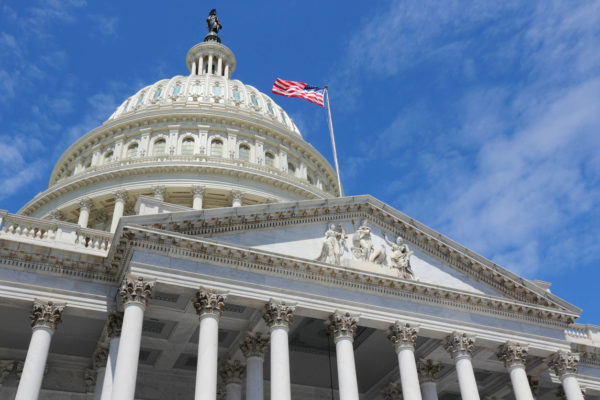As the summer’s fires in the Amazon continue to dominate the international coverage of Brazil, few have noticed another disaster that has been decades in the making.
A new Technology Safeguards Agreement signed by the Trump and Bolsonaro administrations threatens to displace hundreds of Afro-Brazilian farmers and fishermen from their constitutionally-protected ancestral lands as quilombolas, or members of quilombos, communities formed by freed or escaped slaves.
The agreement, which would lead to the expansion of the Alcântara Space Launch Center along the Atlantic Coast, will not go into effect unless ratified by both chambers of the Brazilian congress. A number of Brazilian lawmakers oppose its ratification, some having brought a challenge before Brazil’s constitutional court.
Others such as Eduardo Bolsonaro, the president’s son who was recently nominated to be ambassador to the U.S., are attempting to push through ratification as quickly as possible. Brazil should not ratify the agreement and the United States should end its enthusiastic support for Brazil’s crusade to deny quilombolas their land.
Unfortunately, this would not be the first time that quilombolas have been forced to sacrifice their lands and livelihoods for the launch center.
In August, we met with quilombola leaders and community activists in the colonial remains of the town of Alcântara, in an area where nearly 100,000 slaves once toiled on cotton plantations and where many of the descendants of free black communities who later settled there remain. We learned about the ongoing damage wrought by the launch center, planned in the 1980s by the Brazilian military regime with key support from the U.S., and its displacement of more than 300 families.
By blocking key access to fishing along the coast, the launch center continues to affect the livelihood and economy of quilombola communities throughout the region.
The agreement will only make things worse. In May, shortly after it was signed, the Ministry of Defense conceded that the government will probably expropriate an additional 12,000 hectares along the coastline, which would mean the displacement of an estimated 800 quilombola families and the deprivation of the use of valuable land.
Notwithstanding these harmful effects, some Brazilian lawmakers claim, even in the absence of legally required community consultations and impact assessments, that they are helping the quilombolas. Eduardo Bolsonaro, for example, claimed just weeks ago, “Today, the quilombolas [of Alcântara] still live in misery, while [French] Guiana generates income for the people with its Kourou space base. They don’t have poor people anymore.”
Bolsonaro’s counterfactual claim is unfortunately steeped in a deeper approach of the Brazilian state toward the economic development of rural black communities. Brazilian political leaders across the spectrum have long championed the launch center as a panacea for underdevelopment in what is one of Brazil’s poorest states.
Yet more than 30 years after the center’s construction, the economic benefits are nowhere to be seen for Alcântara’s residents, more than 56% of whom still live below the poverty line.
Just weeks ago, President Jair Bolsonaro insisted on protecting Brazil’s sovereignty when he rejected G7 aid to help contain the Amazonian fires. Ironically, he now seems happy to hand the U.S. the keys to Alcântara.
As some critics have pointed out, one provision of the agreement gives the U.S. the power to restrict entry to the base to U.S. technicians, vehicles and personnel, barring not only quilombolas but Brazilian officials. Another provision would allow the U.S. to store radioactive materials and other harmful substances on the base without notifying the Brazilian government.
Some try to justify the agreement on the grounds of economic development or the advancement of science and technology, President Bolsonaro has never hidden his own motive to ensure, as he did during his campaign, that “not one more centimeter [of land] will be demarcated for indigenous reserve or quilombola[s].”
Recently, U.S. House Reps. Raúl Grijalva (D-Ariz.), Ro Khanna (D-Calif.), and Deb Haaland (D-N.M.) introduced a resolution calling, among other things, for the Bolsonaro government to protect quilombolas’ and indigenous peoples’ constitutional rights. Congress should pass this resolution, oppose the expansion of the Alcântara Launch Center, and ensure that the U.S. government is not complicit in helping Bolsonaro achieve his stated goal.
Karen Engle is the Minerva House Drysdale Regents Chair in Law and co-director of the Bernard and Audre Rapoport Center for Human Rights and Justice at The University of Texas at Austin. She is the author of The Elusive Promise of Indigenous Development: Rights, Culture, Strategy.
Edward Shore is a postdoctoral fellow in the Bernard and Audre Rapoport Center for Human Rights and Justice at The University of Texas at Austin.
A version of this op-ed appeared in The Hill.




